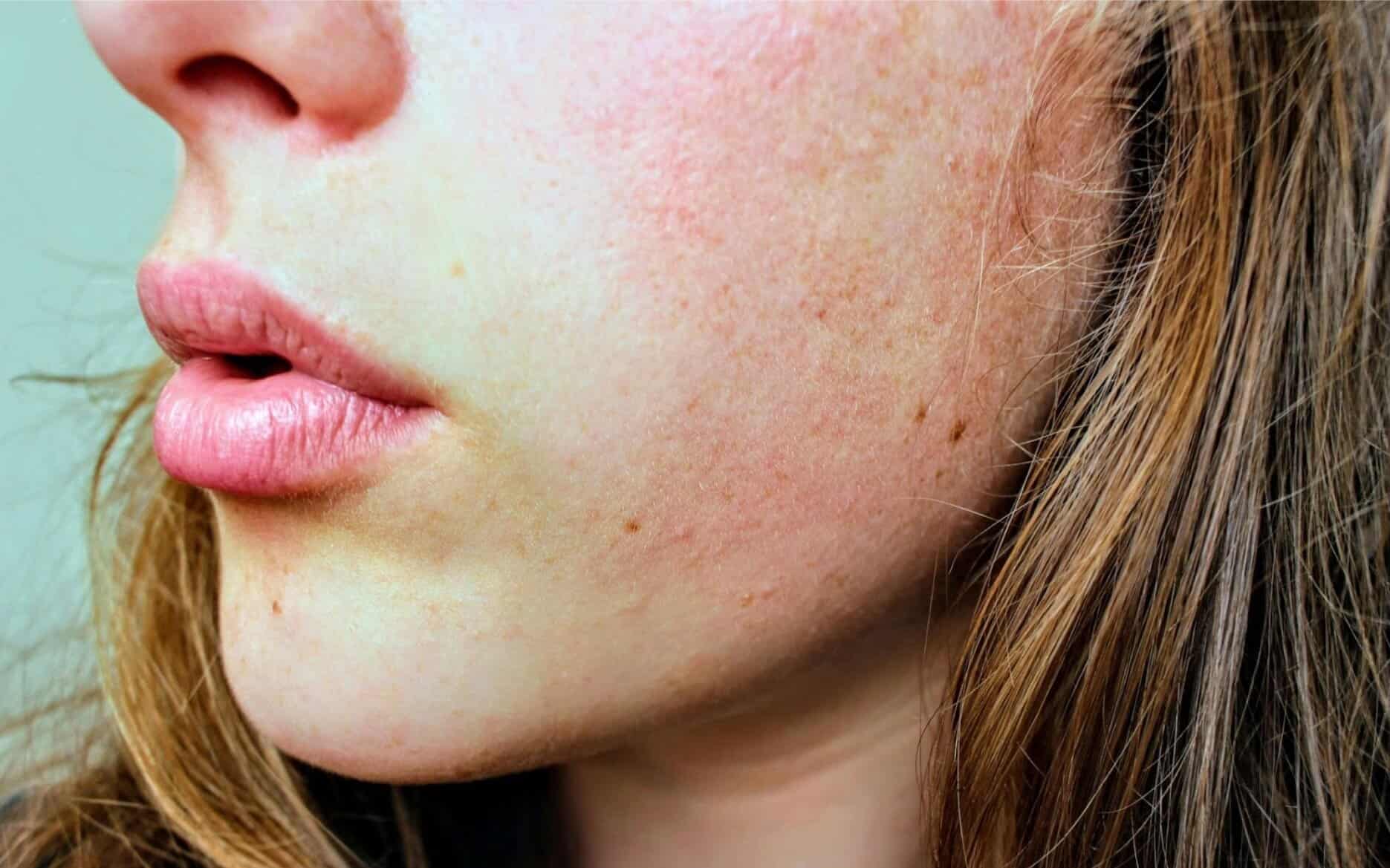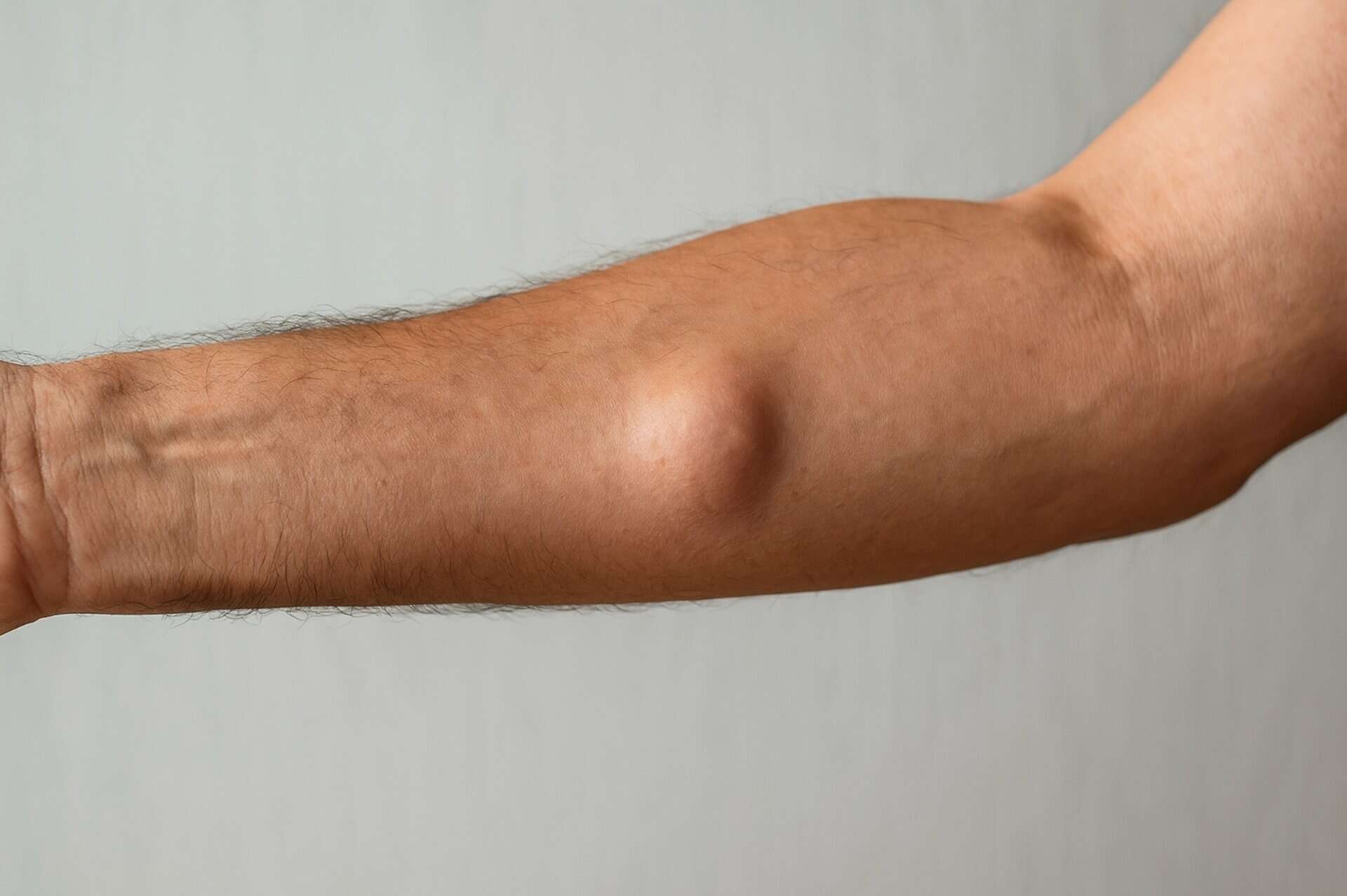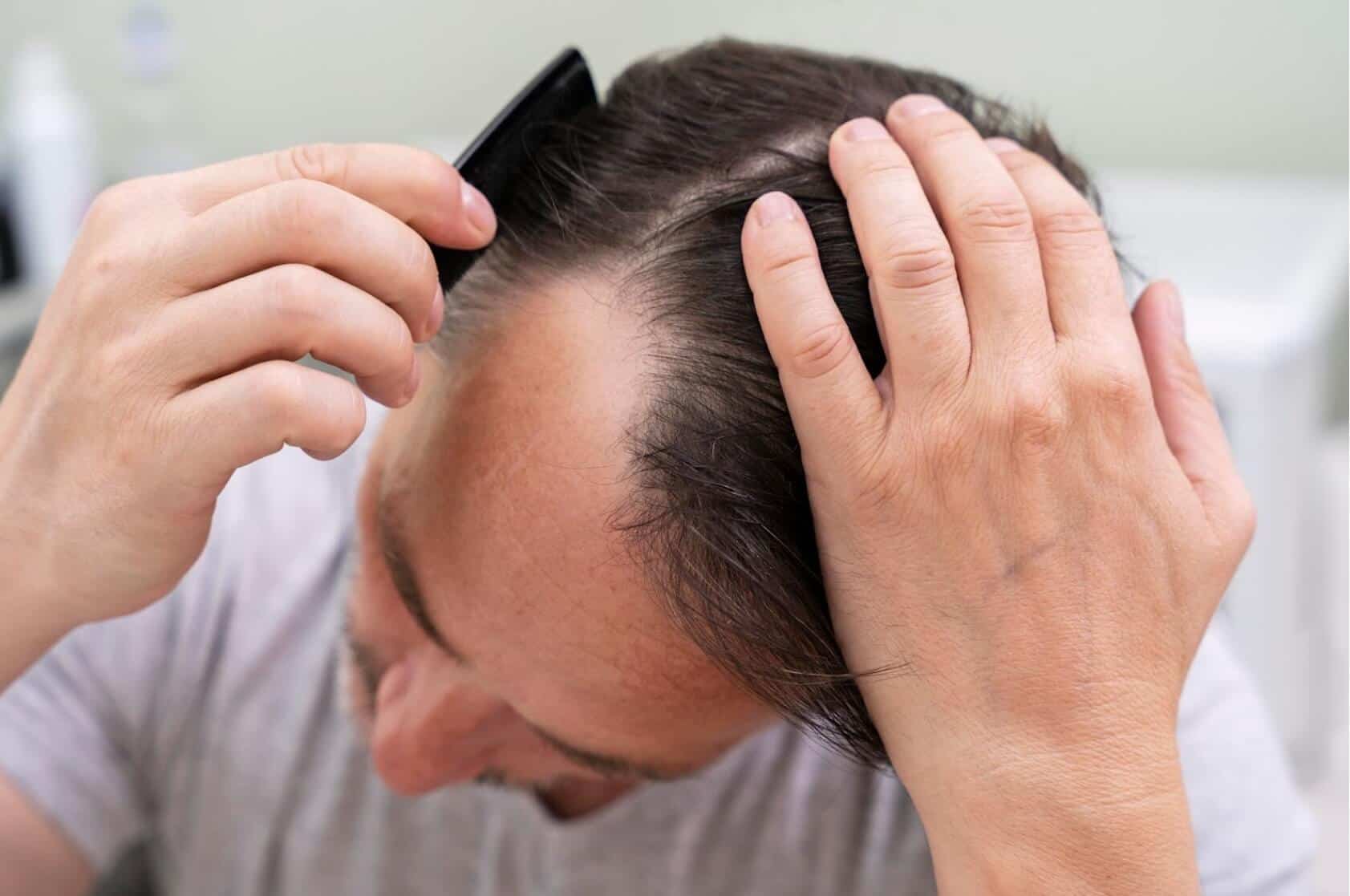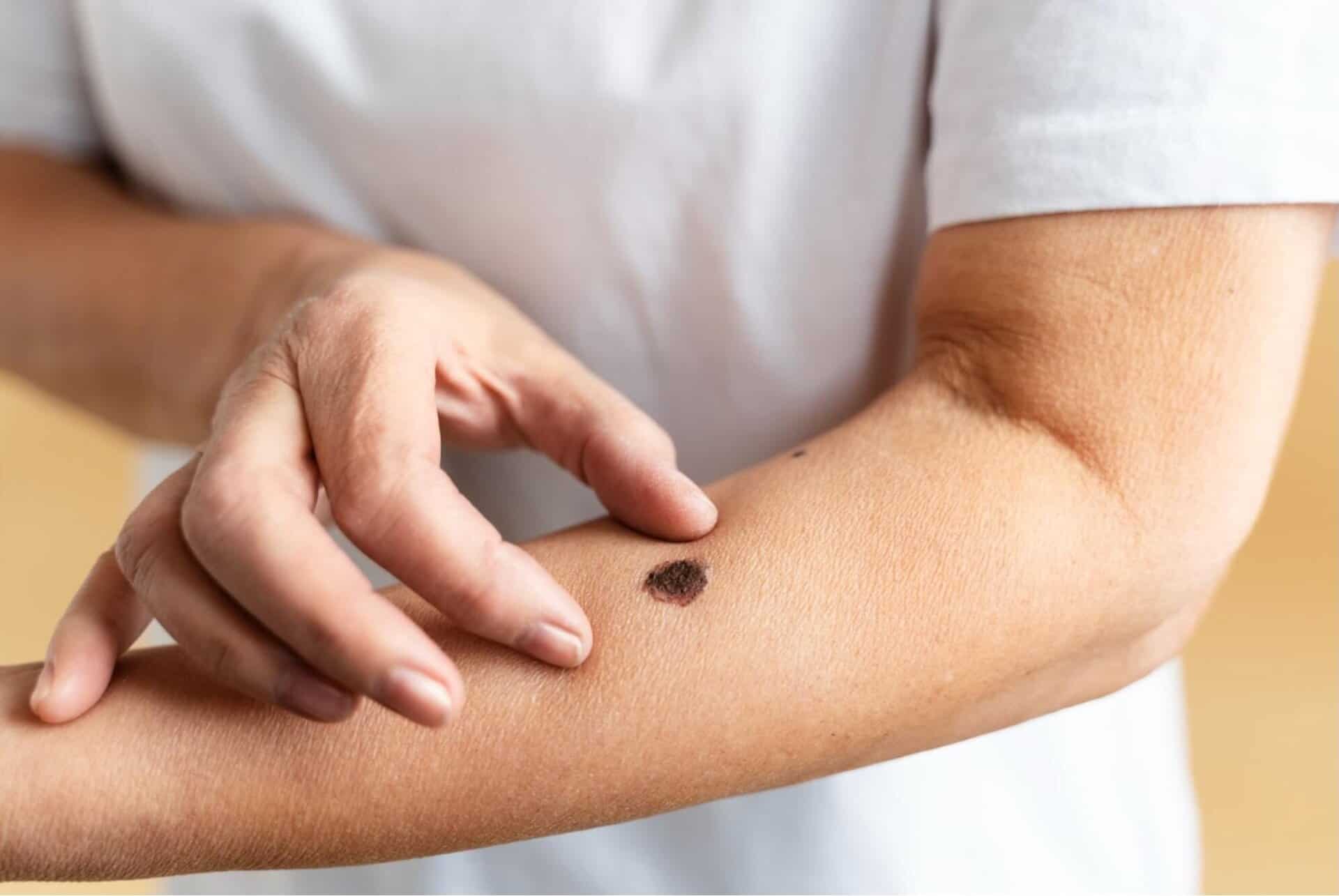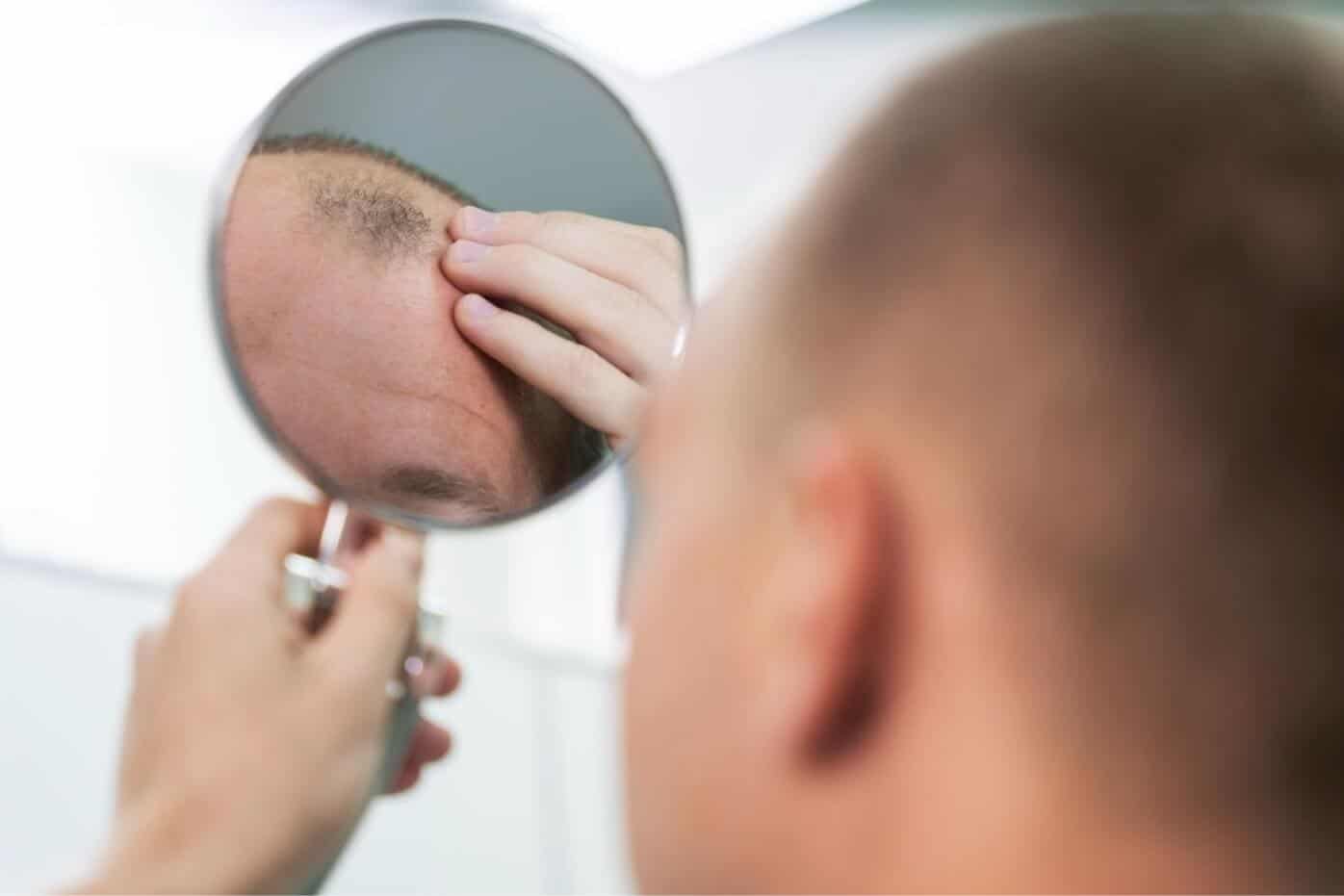- Dr Suhail Alam
- Reading Time: 10 Mins
Searching for natural remedies to tackle hair thinning? Black seed oil might just be what you’re looking for. This ancient oil has gained modern attention for its potential to support hair growth and improve scalp health.
But does science back up these claims? Let’s see in detail!
Key Takeaways
- Black seed oil contains thymoquinone, which provides powerful anti-inflammatory and antimicrobial benefits for scalp health and may stimulate hair growth.
- Research shows 70% of women with hair thinning experienced improved hair density after using black seed oil consistently for three months.
- Multiple application methods (direct scalp treatment, hair masks, leave-in options) make black seed oil versatile for different hair care needs and preferences.
Table of Contents
What Is Black Seed Oil
Black seed oil comes from the seeds of the Nigella sativa plant, commonly known as black cumin, kalonji, or black caraway. This flowering plant, native to Southern Europe, North Africa, and Southwest Asia, produces small black seeds that have been treasured for thousands of years.
The oil’s therapeutic properties stem primarily from thymoquinone, its main active ingredient. This powerful compound contributes to the oil’s antioxidant, anti-inflammatory, and antimicrobial effects. Other beneficial components include carvacrol, t-anethole, and 4-terpineol, along with fatty acids that provide moisturising benefits.
Benefits of Black Seed Oil for Hair
Modern research has begun to validate many traditional claims about black seed oil’s benefits for hair health. Here are its key advantages:
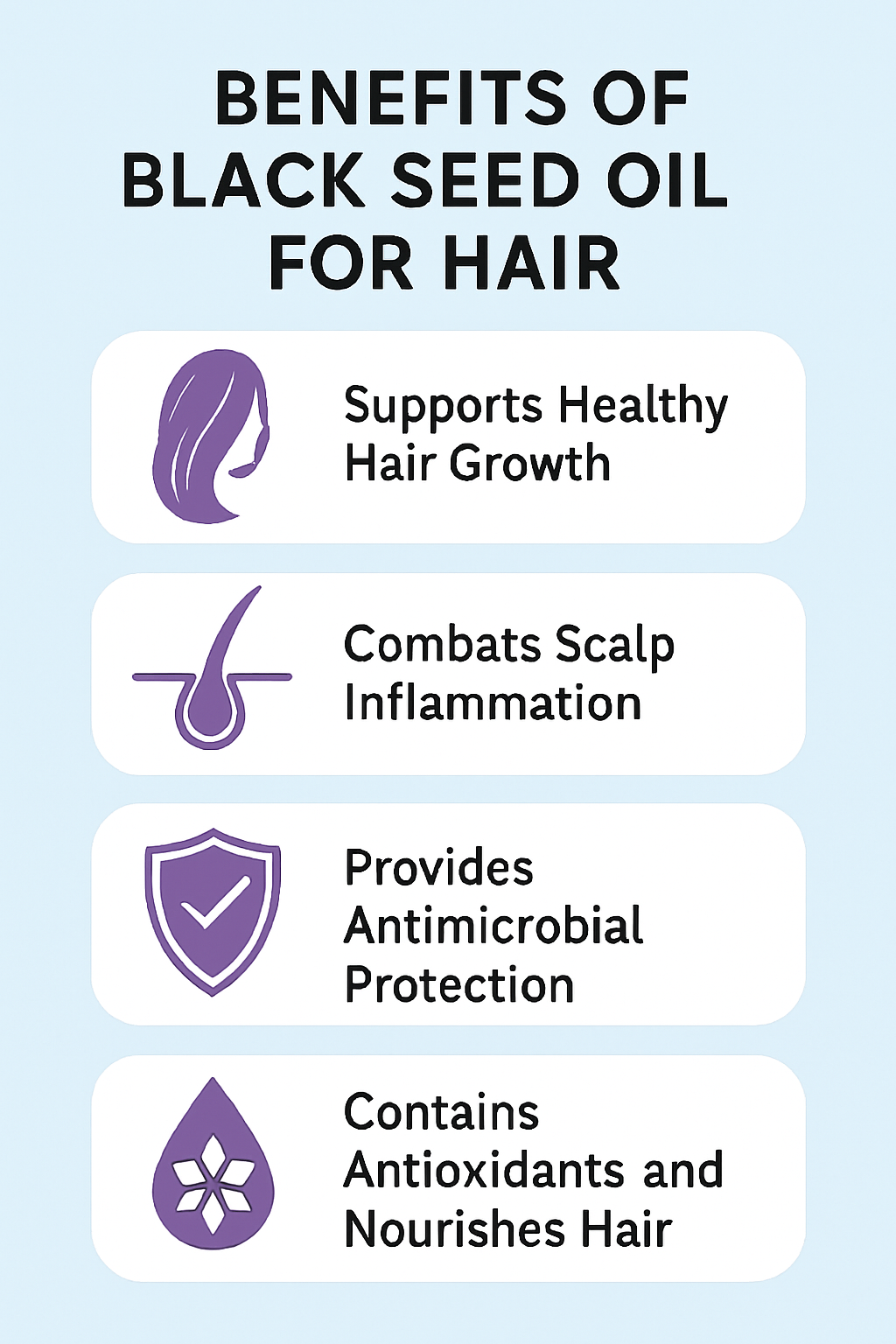
Supports Healthy Hair Growth
A 2013 study in the Journal of Cosmetics found that 70% of women with telogen effluvium who used black seed oil experienced significant improvements in hair density and thickness after three months. The oil appears to regulate the hair growth cycle by extending the growth phase and minimising premature shedding.
Combats Scalp Inflammation
Black seed oil’s anti-inflammatory properties make it valuable for soothing irritated scalps. Research shows it may benefit autoimmune conditions affecting the scalp, with one clinical trial finding it as effective as betamethasone for treating eczema, suggesting similar potential for scalp conditions.
Provides Antimicrobial Protection
A 2021 study in Food Science & Nutrition Research demonstrated that black seed oil effectively suppresses common scalp pathogens, including Malassezia furfur (associated with dandruff) and Staphylococcus aureus. This antimicrobial action helps manage conditions that can interfere with healthy hair growth.
Contains Antioxidants and Nourishes Hair
The oil’s rich antioxidant content helps combat oxidative stress that contributes to hair loss, while its fatty acids moisturise both hair and scalp, reducing brittleness and breakage. This dual action creates an optimal environment for hair health.
How to Use Black Seed Oil on Your Hair
There are several effective ways to incorporate black seed oil into your hair care regimen, depending on your specific needs and preferences.
Direct Scalp Application
The most straightforward method involves applying the oil directly to your scalp:
- Mix equal parts black seed oil and a carrier oil like coconut or almond oil
- Apply to your scalp about an hour before washing your hair
- Gently massage for 5-10 minutes to stimulate circulation
- Leave in for 30-45 minutes
- Wash with your regular shampoo
For best results, perform this treatment 2-3 times weekly.
DIY Black Seed Oil Hair Mask
For a more intensive treatment that nourishes both scalp and hair:
| Ingredient | Amount | Benefit |
|---|---|---|
| Black seed oil | 2 tablespoons | Anti-inflammatory, promotes growth |
| Coconut oil | 1 tablespoon | Moisturises, prevents protein loss |
| Honey | 1 tablespoon | Humectant, antibacterial |
| Yogurt | 2 tablespoons | Protein, gentle exfoliation |
Mix all ingredients thoroughly and apply to damp hair from roots to ends. Cover with a shower cap and leave for 30-60 minutes before washing out.
Leave-In Treatment
For ongoing nourishment, you can create a lighter leave-in treatment:
- Add 5-10 drops of black seed oil to 2 tablespoons of jojoba oil
- Apply sparingly to the length of towel-dried hair, avoiding the roots if you have oily hair
- Style as usual
While black seed oil can be left in the hair, it’s important to wash your hair regularly to prevent buildup that could clog pores and lead to scalp issues.
Potential Side Effects of Using Black Seed Oil
Black seed oil is typically very safe for topical scalp application. The main concern is possible contact dermatitis, which can range from mild to severe in rare cases. So, always test on a small skin patch before full scalp use.
While internal use may cause digestive issues or affect blood sugar, these aren’t concerns with external application.
Alternative Hair Loss Treatments
When black seed oil doesn’t provide sufficient results, several clinically-proven alternatives exist. Your choice should be guided by your specific type of hair loss, its severity, and your personal preferences.
Medical and Advanced Options
| Treatment Type | Examples | Best For | Effectiveness |
|---|---|---|---|
| Topical Medications | Minoxidil (Regaine) | Various hair loss types | 60–80% effective for slowing loss |
| Oral Medications | Finasteride, Spironolactone | Pattern baldness | 80–90% effective for halting loss |
| Advanced Therapies | PRP, Low-Level Laser, Microneedling | Early–moderate hair loss | 60–70% show improved density |
| Surgical Solutions | FUE/FUT Hair Transplants | Advanced hair loss | 95%+ success rate |
Minoxidil works by increasing blood flow to hair follicles and is versatile enough to treat multiple types of hair loss. Finasteride (for men) and spironolactone (for women) address hormonal causes of pattern baldness.
For those seeking non-pharmaceutical approaches, therapies like PRP utilise growth factors to stimulate follicle regeneration, while laser treatments energise cells and increase blood flow to the scalp.
In cases of advanced hair loss, modern hair transplant techniques offer permanent restoration with natural-looking results. Consulting with a hair specialist can help determine which option best suits your specific condition.
The Bottom Line
Black seed oil shows promising potential for supporting hair growth and improving scalp health. With research backing its benefits for conditions like telogen effluvium and its proven antimicrobial and anti-inflammatory properties, it deserves consideration as part of your hair care routine.
While not a miracle cure, when used correctly, this natural oil may help create optimal conditions for healthier, stronger hair growth.
Remember that the right treatment depends on the specific cause of your hair concerns. For personalised advice about hair loss, consider consulting with a trichologist or dermatologist who can recommend the most appropriate solutions for your situation.




